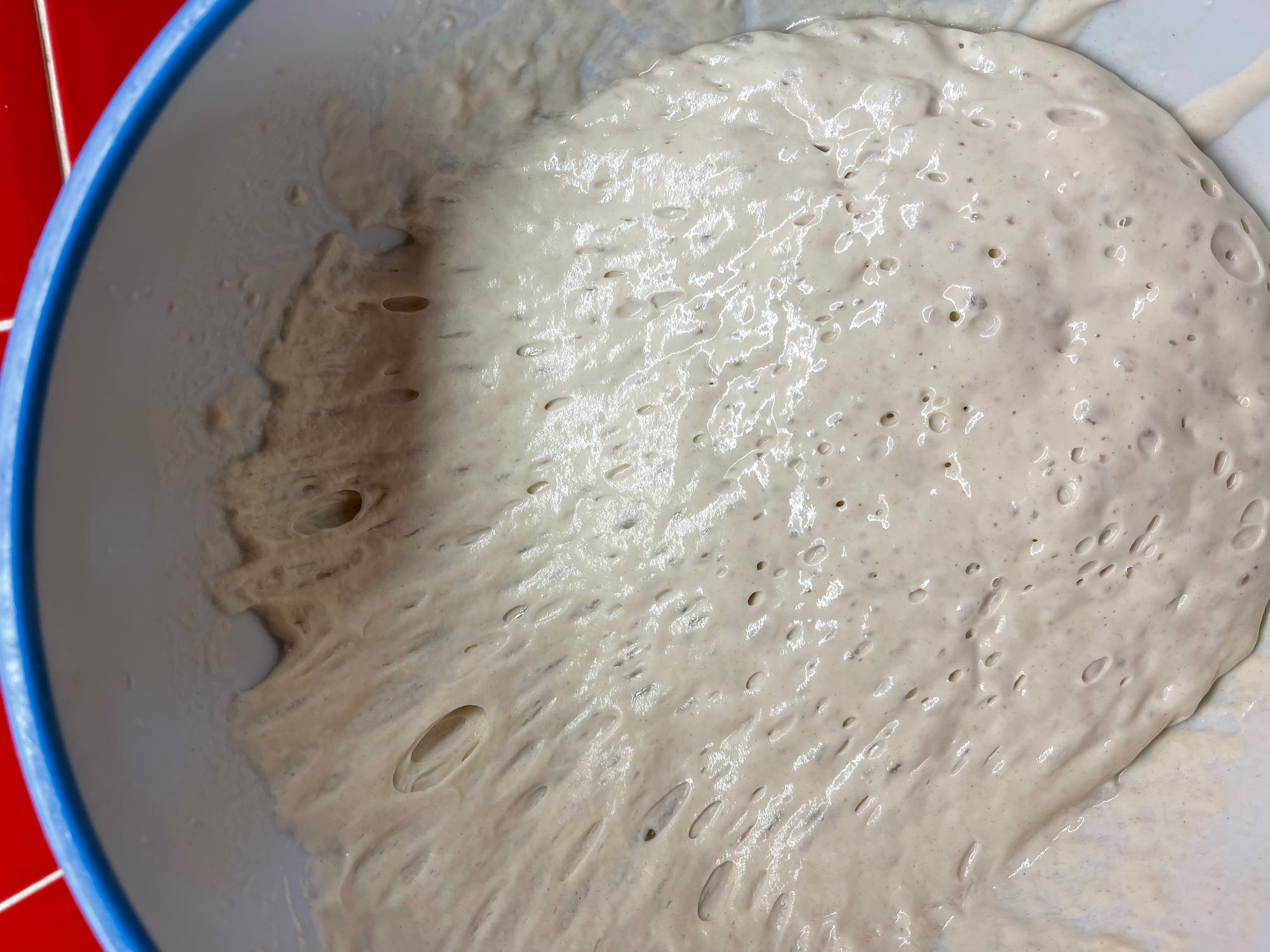What the heck is a preferment?

There is a lot of discussion on the various online pizza groups around pre-fermenting pizza dough and plenty of confusion around what it is and if we should use it. It has been hugely popularised by an influential pizza chef called Vito Iacopelli who does some great youtube videos on pizza making.
It is well know that a longer fermentation creates more complex flavours in the finished dough. This can be achieved at a variety of temperatures, down to you to experiment if you can detect a difference.
Long fermentation comes at a price. It isn't as convenient when you are hungry and can also weaken the gluten structure in the dough as over time protease enzymes begin to slowly degrade the gluten that has built up. So, why might we only want to long ferment a part of the dough and not all of it? Here are some possible reasons.
Number 1: Flavour
Increasing the length of fermentation (up to a point) will bring you a more flavoursome dough. You also don't need to use as much yeast which might be better for digestion. But, a long fermentation could weaken the dough a bit, perhaps not enough to worry a pizza chef but perhaps more important if you are making a loaf. Also, perhaps a long fermentation with all the dough gives your dough too much flavour for you liking, maybe a little sour? Long fermenting just part of the dough is therefore a compromise as you get to top it up with new flour so some of your dough has a long fermentation and the rest of it is shorter.
Number 2: Flexibility
Maybe you don't have the storage to keep a lot of dough fermenting in bulk for 24 hours or more but you do have the space for 1/3 of it. You could ferment part of your dough overnight and simply shape it up the next day and leave to proof. Also, a preferment has a longish window where it can be used. You could use it a little under-ripe and perhaps add a bit more yeast to the final dough if you are in a rush or wait a bit longer and use it without extra yeast. This gives you some flexibility if you are making several batches of bread or pizza throughout the day.
Number 3: Extensibility
If your flour is very strong and you are kneading mechanically you might end up with a dough that is too elastic. Much like an autolyse, if you make a wet preferment like a poolish and don't add any salt to it then you might end up with a dough that is more extensible and is able to expand more in the oven. You will have to experiment to see if this applies to you.
Hope that helps. Please do sign-up and add some comments. It is an interesting area of discussion.

